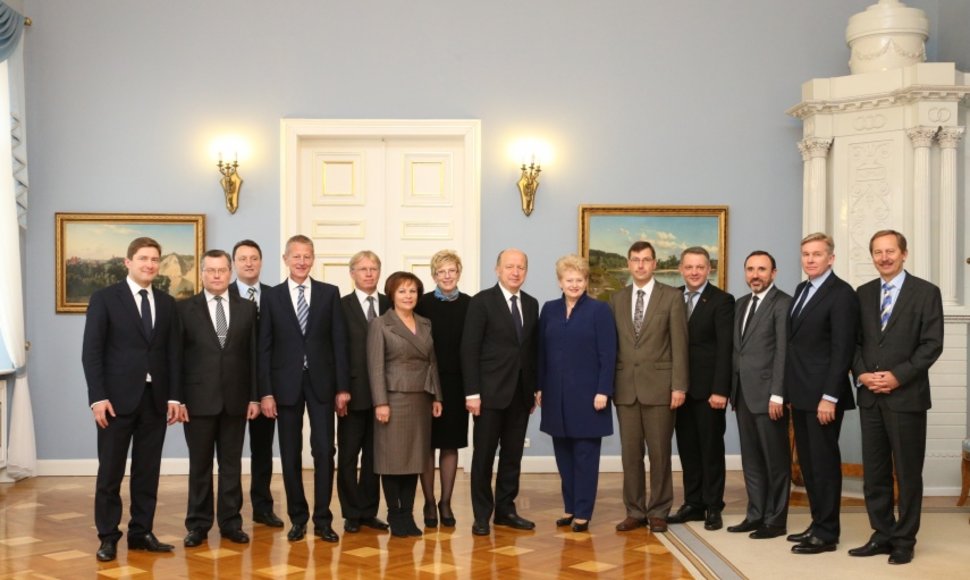According to the head of state, Prime Minister Andrius Kubilius' Government pursued responsible policies that allowed to avoid a financial collapse and return to one of the fastest growth rates in the European Union. Meanwhile energy projects made radical steps towards energy independence.
"The financial situation taken under control during the downturn allowed to avoid a financial collapse, to put overspending under control as well as to ensure one of the fastest growth rates in the EU," Daiva Ulbinaitė, spokeswoman for the president, told reporters.
"Another work the president calls historic is the launched fundamental reform of the energy sector, something that none of the previous governments dared to undertake over 20 years of independence," Ulbinaitė said.
Among energy projects, the President's spokeswoman highlighted the Liquefied Natural Gas Terminal and Visaginas Nuclear Power Plant, links with Sweden and Poland, as well as markets of electricity, gas, and biofuel.
According to Grybauskaitė, the tasks should be continued by the new administration after general election.
“The President emphasized the need to continue the energy independence policies and assure the country's financial stability,” Ulbinaitė added.
The president also urged MPs to adopt a constitutional law, which would meet the commitments undertaken in the EU fiscal compact.
Combating black economy, restructuring of the heating sector, stimulation of employment, and health system reforms should be among key tasks after the elections, the spokeswoman cited Grybauskaitė as saying.
In her words, a focus should be placed on environmental issues, namely, renovation of Soviet-built apartment buildings and waste management.
Both the President and the Prime Minister said bilateral cooperation has been very positive.
Kubilius' Government came to power in late 2008, on the eve the downturn. The previous social democratic government was criticized for overspending. The new rightist government took austerity measures and reformed the tax system. Following an almost 15-percent plunge in 2009, Lithuania's economy returned to growth the following year, and last year, the GDP growth was 6 percent – one of the highest rates in Europe.
Having avoided devaluation and the need for external financial aid to ensure financial stability in the country, the center-right government has received praise from international institutions and other countries.
However, sudden changes, especially social spending cuts, infuriated a large part of the Lithuanian population, and the conservatives lost public support soon after coming to power and have so far been lagging behind the opposition in opinion polls. Opponents of the incumbent government, who have so far criticized public spending cuts, say they will focus on stimulating growth.


















